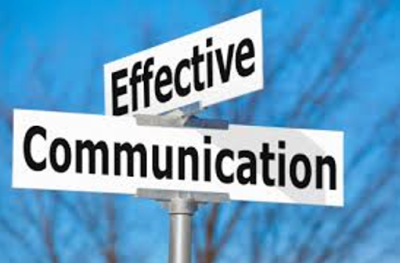When the physical universe was created, the Bible records that God used words. He spoke into the darkness and said “Let there be light”. In the garden, the Scriptures reveal that Adam walked with God. It was there that he was given the instructions for living and the warnings against rejecting  these precepts. And again God used words to transmit His truths. When a man was selected to establish a new people, one that would be under the tutelage and direction of “the Almighty” through which the whole world would be blessed, once again God used words to make promises that would surpass Abraham’s ability to imagine them. As Moses was raised up to lead his people into a season where they would know the will of the Creator for their lives, commandments were written upon tablets of stone by the finger of God, and predictably, He used words to communicate the message. Time after time, from Jeremiah to Jesus, the truths of heaven are revealed to mankind, and consistently, with some exceptions, God chooses to use the medium of language to connect his heart to ours. Through eyes and ears, we read and hear the words of God and learn His mind, apprehend His substance, and become familiar with His divine purpose in our lives.
these precepts. And again God used words to transmit His truths. When a man was selected to establish a new people, one that would be under the tutelage and direction of “the Almighty” through which the whole world would be blessed, once again God used words to make promises that would surpass Abraham’s ability to imagine them. As Moses was raised up to lead his people into a season where they would know the will of the Creator for their lives, commandments were written upon tablets of stone by the finger of God, and predictably, He used words to communicate the message. Time after time, from Jeremiah to Jesus, the truths of heaven are revealed to mankind, and consistently, with some exceptions, God chooses to use the medium of language to connect his heart to ours. Through eyes and ears, we read and hear the words of God and learn His mind, apprehend His substance, and become familiar with His divine purpose in our lives.
Working with couples, I am finding myself repeatedly making a simple request that may seem insultingly rudimentary at first hearing, and yet proves profoundly transforming when applied. I am asking husbands and wives to talk to each other using words. Studies have shown that the overwhelming majority of information transmission is non-verbal; tone, body language, and facial expression are a few of the noise factors that create distortion in the conversation. The popular, and often quoted, line from the 1967 epic film Cool Hand Luke springs to mind: “What we’ve got here is a failure to communicate.” And many, otherwise well-intentioned individuals, suffer from catastrophic collision in relationships because they are habitually underutilizing actual “words” when interacting.
Have you ever heard someone you love say something like “You don’t understand me at all. If you really knew me, you would know that’s not what I meant!” or similar phrasing that reveals reliance upon inference, intuitiveness, interpretation, or previous knowledge of true motives? And what is being suggested here is that this sort of interaction style is a recipe for conflict. The Biblical guideline is to say what we mean and mean what we say. But those that examine actual relationships closely say that this rarely happens.
The Scriptures warn against adding onto God’s Word or taking away from it. If we alter the message of God, there are all sorts of unintended consequences that result. God has been explicit in clarifying His love, offer of grace, and promises to those who love Him. Here is a challenge: What if we followed God’s example of relationship building and chose to use “words” to interact instead of depending upon deduction, assumption, and good intentions? What if there was a pre-determined understanding with one’s partner that nothing was envisioned beyond what was actually stated, and nothing should be inferred except what was heard? How many failures would return to friendships? How many hurting hearts could be filled with hope again when authentic communication emerges in a relationship?
I find it fascinating that the only thing God has exalted above His name, is His Word. He used words to create the universe, words to establish His course for living successfully, words to inform of the destructiveness of sin, words to communicate His purpose of redemption for all Creation in His only begotten Son, Jesus Christ. God uses words to record His love letter to humanity in written form, and words in the mouths of His preachers to those that would hear. Let’s also use words to communicate love to each other, to show kindness, appreciation, and gratitude, to reconcile, to forgive, and to live
